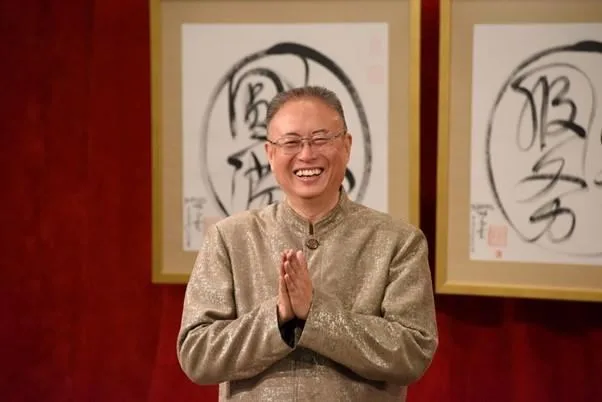It’s 2023. You’re thinking about the improvements you’d like to make this year and perhaps your aspirations for the year. Be them in your career, with your finances, or in your romantic life. You’re hopefully following up on an enjoyable festive period with your family….
But no. Being the humans we are, the winter season and January / February aren’t always full of optimism and motivation for many of us. This period can be very difficult, with uncomfortable emotions and circumstances popping up. In fact, it is a notorious time for bringing up negative feelings, sometimes not helped by the upcoming Valentine’s Day and all the self-evaluations that often come with it.
The New Year Can Bring New Focus
That’s why I would like you to try to turn your focus toward the idea of self-compassion in the first couple of months of the New Year. Having self-compassion at the front and center of your mind when those blue feelings come up can be a brilliant way to stop you from spiraling mentally. Patience and self-forgiveness towards yourself and others can open up your mind and soul to feel true compassion and ultimately lead to better well-being through this often-difficult period.
 The additional pressure of the “New Year” period
The additional pressure of the “New Year” period
“Being kind” is a message confronting us all the time at the moment. Social media, every TV commercial, every marketing campaign, and every major brand are falling over themselves to tell us “compassion is important.” But modern messaging tends to mix its messages, and they associate compassion with indulgence (“treat yourself”) and spending money. Take note, this isn’t the compassion I speak of.
Of course, being compassionate with others and ourselves is important all through the year. But right now, with all the mounting pressures on our lives, we don’t need to add additional pressure on ourselves to have a good time at all costs in this blue month. You don’t need to feel pressured to have fun because “it’s the new year,” please everyone, or have a list of manifestation goals.
Many of us will be still thinking about failed relationships, regrets from the last year, difficult family circumstances, or missing the loved ones who are no longer with us. So haven’t we got enough without worrying about being the best version of ourselves and exercising compassion to everyone?
What does it mean to be compassionate?
Being truly compassionate with ourselves is predicated on the assumption that we are already lovable, capable, and good enough – just as we are. However, this is a difficult lesson for most of us who have grown up with beliefs about ourselves that we don’t deserve happiness, love, and friendship. Compassion and kindness towards others can only grow from our ability to feel compassion towards ourselves.
The “New Year, New You” saying and New Year’s resolutions (which at times become self-imposed commandments, often setting ourselves up to fail), concentrate our focus on the idea of continuous self-improvement in the New Year. We try to “get focused”(often as we return to work) and try to inject excitement and motivation into the drudgery of our normal day-to-day lives. But this constant frame of “self-improvement” in the New Year also means that we begin to reflect on the past and what we have and what we don’t. We can easily get lost in fantasies of what we think we should have and how we can improve our lives.
Also, uniting with family members over the just-gone Christmas period typically adds another layer of pressure on us. Perhaps we feel guilty because we don’t see our parents enough, for example. Or perhaps we ended up feeling angry regardless of the party season due to long-held and deeply buried resentments we have toward those in our family.
As human beings, we tend to hold on to our regrets, anger, and sadness far harder than we do positive memories and experiences. This ends up blocking us from practicing self-compassion and, therefore, blocks us from a healthy approach to dealing with others.
As the New Year has come round, are you doing what you want to do or what you think you should do?
With a year of “aspiration” ahead, many of us find ourselves doing things we think we should do. If we follow the messages regarding the New Year that we have been inundated with by the media and throughout our lives, this means trying to “live our best life“ and being as social as possible.
All of this enforced behavior can leave us feeling unappreciated, tired, resentful, and generally unable to truly feel compassion for ourselves. A January that should be joyous can open up other feelings in some of us. We may feel sadness, anxiety, grief, or inexplicably depressed. In fact, there are numerous academic papers showing how wellbeing can particularly take a hit over the winter and New Year period. It’s not uncommon to come down with a physical illness, such as the flu.
Instead – make of list of all the things you actually want to do just for yourself. If you don’t want to go to the gym, just go for a walk. If you don’t want to attend a certain social event or party, don’t. Plan your weeks and months around things that you want to do just for yourself and leave everything else at the door. Forgive yourself for not being perfect. Just be you.
Ancient wisdom can be an important guide
Western thinking traditionally doesn’t allow for the kind of connectivity that ancient Chinese philosophy and medicine have understood for thousands of years. Our physical wellbeing depends on our emotional and mental wellbeing. More recently, studies from major US universities and clinical counselling thought are finally aligning with this ancient wisdom and showing that a lack of compassion and forgiveness towards ourselves can lead to physical stressors, such as high blood pressure.
 Self-compassion arises when we learn to forgive ourselves
Self-compassion arises when we learn to forgive ourselves
So we don’t have to be perfect. We’ve established that. But how about if you’re still beating yourself up and self-criticising for previous events and mistakes. Well, that just won’t do.
Forgiving ourselves allows for feelings of self-compassion and improved self-worth. Practicing self-forgiveness unblocks our way to find compassion – true compassion rather than performative kindness.
Mistakes and previous negative actions are easy to make. We all do it – it’s how we learn and grow. No one is ever going to have a perfect record. But learning about self-forgiveness means we can move forward. Just accept that your mistakes are an inevitable part of your life and your journey. Just look around you – do you know anyone who hasn’t made a critical mistake at some point in their life or exhibited negative patterns of behavior?
Understand that you must forgive yourself to meaningfully move forward. If you’ve wronged someone, even if it was years ago, compose the message you need to send to them to move forward and take the plunge. Apologize for the potential hurt caused, and understand that yes, you did wrong (and that’s fine – we’ve all done wrong), but that was then, and now you’re older, wiser, more emotionally mature, and a more complete person in hindsight. Forgive this version of yourself. This version of yourself is enough.
Forgive yourself
A lack of self-forgiveness will leave you stuck in those painful, previous states of shame and guilt may cause you to exhibit anger and resentment towards others. You will remain stuck in the past and unable to fully enjoy your life in the present. Letting go of the past is essential to moving forward in life.
Consciously developing a greater ability to forgive yourself can be life-changing. It builds your resilience and removes obstacles to living with real happiness and joy. It can be difficult to let go of the past, but there is a way to get to the root of your negative emotions that are holding you back.
Being compassionate towards ourselves involves paying deep and lasting attention to the needs within us, those needs that are often dismissed, denied, or ignored. If we ignore the feelings that we truly have inside of us, we get stuck in the persona we think we should have.
Mistakes are easy to make, but forgiving ourselves for them is not. Learn more about what self-forgiveness means and how to forgive yourself for past mistakes.
Applying ancient wisdom to compassion and kindness
Ancient wisdom teaches the Universal Law of Shen Qi Jing. Shen is the soul. Qi is our life force. Jing is the physical circumstances of our lives. Our soul is the boss and leads the heart. The heart leads the mind. The mind leads energy, and Jing is where life is transformed. Balancing these is the key to finding the kind of self-love and self-compassion we can all enjoy.
We all make mistakes in life. The important thing is how we deal with what we have done. If we learn a lesson and ask for forgiveness, we can prevent ourselves from repeating the same mistakes in the future. Instead of creating more negative information within by feeling guilty or angry, we can practice forgiveness and compassion.
The crucial step in this is to align the soul, heart, mind, and body with unconditional forgiveness and compassion. This removes the blockages to inner peace and inner joy, allowing us to feel compassion and react to others with that same compassion.
In a book I wrote with Cynthia Deveraux and David Lusch – Greatest Forgiveness: Bring Joy and Peace to Your Life with the Power of Unconditional Forgiveness – we share a forgiveness practice and offer a special tool to help people connect with their souls, forgive, and ask for forgiveness.
This tool is the healing, transformative art of Tao Calligraphy – which is a form of meditative practice that creates the high positive frequency of the source of life. Practicing this will connect our minds with unconditional forgiveness and help us to work through the negative emotions that are holding us back.
Forgiveness and compassion in the coming months
Be truly kind to yourself in these first couple of months of 2023, by looking deep inside and recognizing feelings for what they are. If you are harbouring deep resentments, perhaps connected with family or traditions, honor your own dark feelings, and forgive yourself.
This is the first step to letting the light in and allowing compassion to penetrate your heart and soul. Compassion towards others is difficult to act on when you’re struggling with your own self-worth. Try finding ways to forgive yourself and others at this time – you may be surprised at the benefits it brings, including:
- Boosting energy, stamina, vitality, and immunity.
- Healing physical, emotional, mental, and spiritual bodies.
- Transforming all kinds of relationships.
- Opening spiritual channels.
- Increasing intelligence of the heart, mind, and body.
- Bringing success to every aspect of physical life.
- Enlightening soul, heart, mind, and body.
Forgiveness makes way for compassion and frees us to lead a healthy, joyful, peaceful, and vibrant life. What better time to explore this than in this New Year period?
To find out more about Master Zhi Gang Sha and his spiritual practices, philosophy, and extensive back catalogue of books, articles, and videos, click here.
Who is the author?
Dr and Master Zhi Gang Sha is an award-winning wellness author and global icon in psychology, mental health, meditation, traditional Chinese medicine, and relationships. He is an 11-time New York Times international bestselling author on relationships, healthy aging, mental health, meditation, and personal development. Known across the globe as an internationally acclaimed wellness coach, Dr and Master Sha has amassed a huge global online following (140K across all his platforms) for his practice of Tao Soul Healing and the Tao Calligraphy Healing Field. He is also the founder of the philanthropic Love Peace Harmony Foundation. Please visit https://drsha.com and https://www.facebook.com/drandmastersha/for more detail.

Dr and Master Zhi Gang Sha



 Self-compassion arises when we learn to forgive ourselves
Self-compassion arises when we learn to forgive ourselves![women [longevity live]](https://longevitylive.com/wp-content/uploads/2020/01/photo-of-women-walking-down-the-street-1116984-100x100.jpg)










